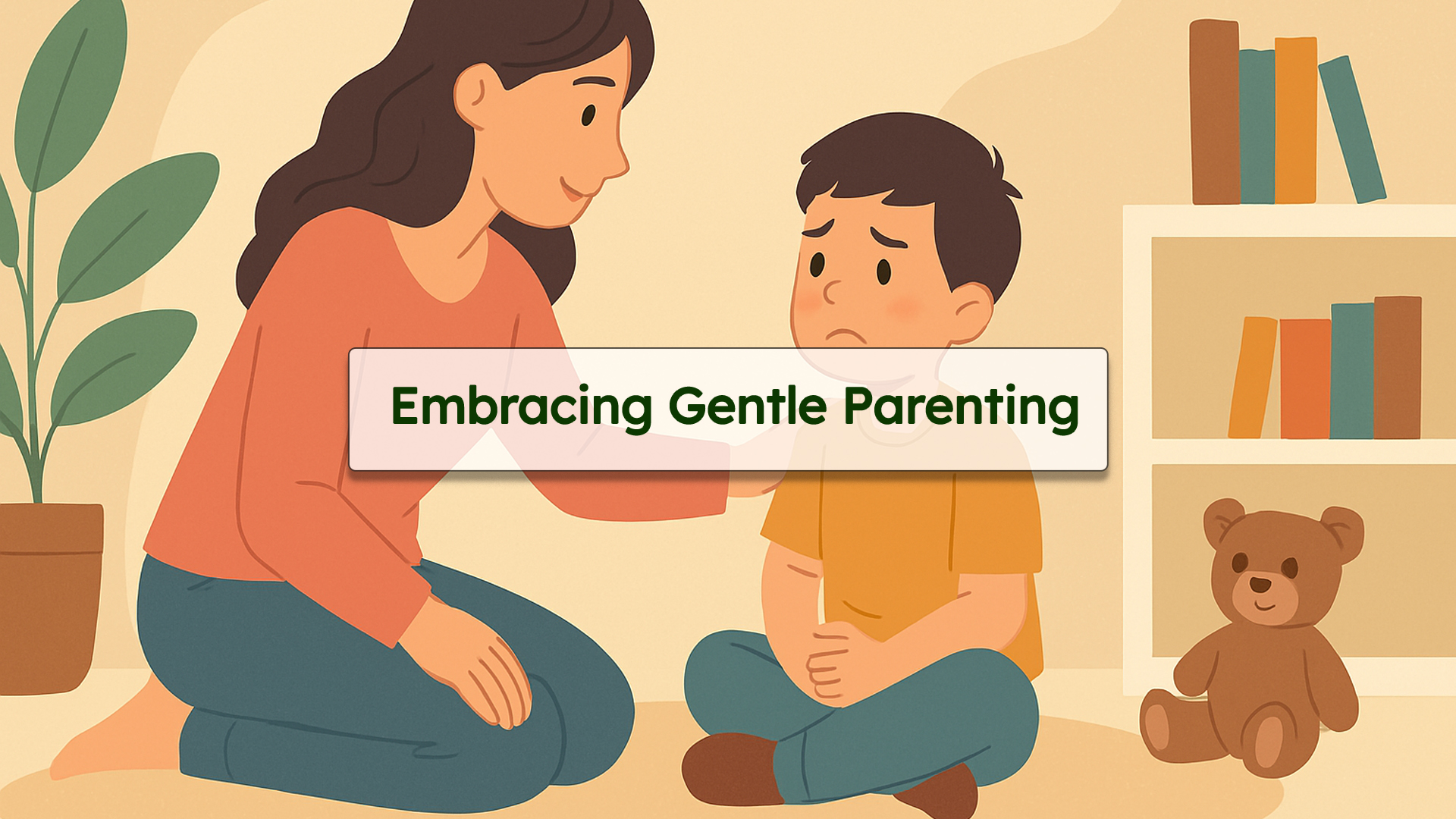Parenting is one of life’s most rewarding yet challenging journeys. In recent years, gentle parenting has gained popularity as a compassionate and emotionally intelligent approach to raising children. But what exactly is gentle parenting, and how can you incorporate it into your everyday routine?
What is Gentle Parenting?
Gentle parenting is a philosophy rooted in empathy, respect, and understanding. Instead of relying on fear, punishment, or rewards to influence behavior, gentle parenting encourages open communication and connection. The goal is to foster a trusting relationship where children feel safe, heard, and loved.
Key Techniques of Gentle Parenting
Here are some core techniques used by parents who practice gentle parenting:
1. Practice Empathy
Children, just like adults, have big emotions. Instead of dismissing tantrums or emotional outbursts, gentle parenting encourages you to validate those feelings.
Try this:
Instead of saying, “Stop crying, it’s not a big deal,” try, “I see you’re upset. Want to talk about what’s making you feel this way?”
2. Set Boundaries with Respect
Gentle parenting doesn’t mean permissive parenting. Boundaries are important—they just need to be communicated with kindness and clarity.
Try this:
“I understand you want to keep playing, but it’s bedtime now. Let’s pick a story together to end the day nicely.”
3. Model the Behavior You Want to See
Children learn more from what we do than what we say. Show them how to manage emotions, resolve conflict, and treat others with kindness by being a living example.
Try this:
If you lose your temper, take a moment to calm down and apologize. This models accountability and emotional regulation.
4. Encourage Autonomy and Decision-Making
Give your child a voice and involve them in age-appropriate decisions. This builds confidence and helps them feel respected.
Try this:
Instead of giving commands, offer choices: “Would you like to wear the red shirt or the blue one today?”
5. Use Natural and Logical Consequences
Rather than punishments, allow consequences to teach lessons when appropriate. This helps children understand cause and effect without feeling shamed.
Try this:
If a toy is broken from rough play, don’t replace it right away. Talk about what happened and how to care for belongings in the future.
Final Thoughts
Gentle parenting isn’t about being perfect—it’s about being present, patient, and willing to grow alongside your child. It’s not always the easiest path, especially in a world that often praises quick fixes and obedience. But the reward is a strong, secure bond and emotionally intelligent children who feel deeply connected to their caregivers.
If you’re just starting out with gentle parenting, be kind to yourself. Like all good things, it’s a journey. And your child doesn’t need a perfect parent—they need a real one who shows up with love, even on the tough days.


